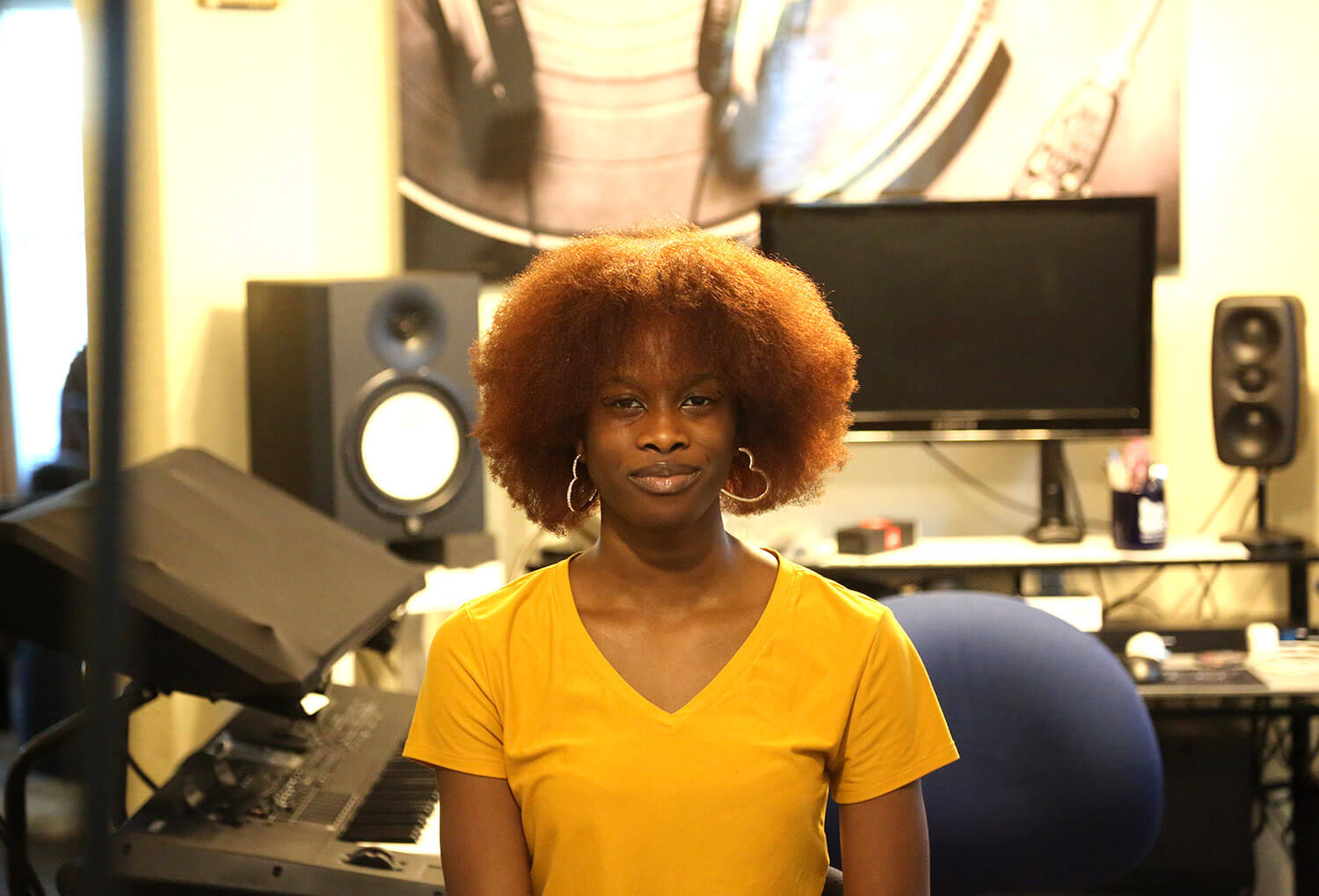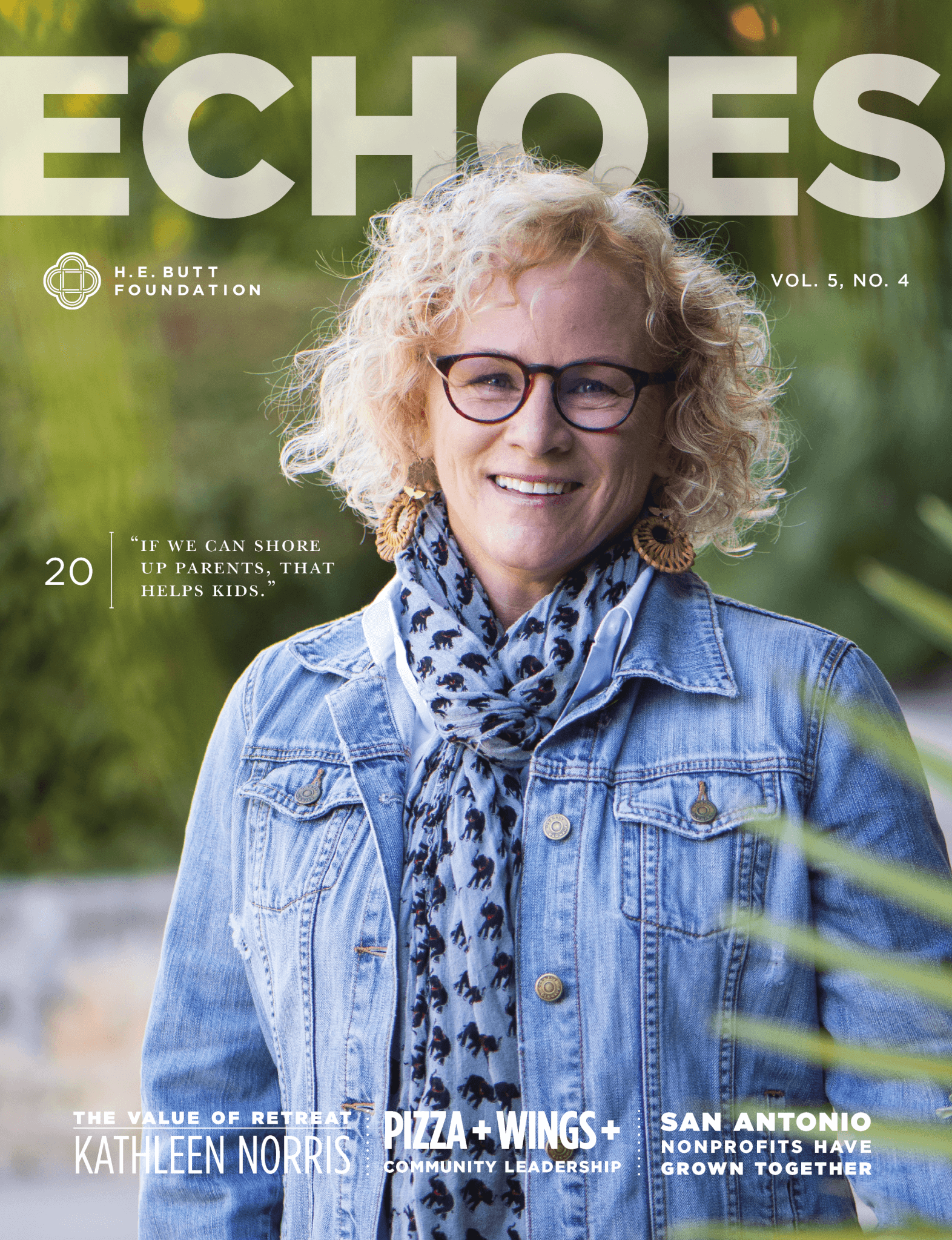

What goes through a teenager’s mind, especially at the start of a global pandemic, when school has been suspended?
Early in summer, nine students attending San Antonio Independent School District’s CAST system captured their thoughts on a digital recorder as part of a storytelling workshop led by local artist Mark Menjivar.
During the course of a week, Honor Smith, a sophomore at CAST Med High School, struggled to understand why some people refused to wear masks inside Walmart. Then she joined an online movement of teenage girls who were trying to get Harry Styles’ single “Watermelon Sugar” nominated for a Grammy. She also thought about the racism that exists in her northside community.
“My sister was taking a walk around the neighborhood,” Smith said in her piece of nearly 30 minutes. “We live in a pretty diverse neighborhood. There’s a lot of white people—more Hispanics and Blacks. And she passed a couple of white boys, and they called her the N-word as she was walking by.”
“Imagine living in San Antonio and still being racist. Like, San Antonio is a mixing pot...”
“That’s kind of sad,” said Smith, who’s 15. “Imagine living in San Antonio and still being racist. Like, San Antonio is a mixing pot—not of every culture, more Hispanic than anything. But even then, why be racist when you’re living somewhere full of other minorities?”
Smith’s goal was to capture the range of emotions going on inside a teenager, interspersing her own monologues with conversations with family and friends. They touched on the pandemic, but also as a Black girl living in a time of racial reckoning in this country.
Menjivar, who also teaches at Texas State University, partnered with the H. E. Butt Foundation and served as adviser to students from the four CAST schools around the city. Students ended up representing different parts of the city.
“Part of the way that we framed it was really about this idea of a pandemic journal,” Menjivar said. “In a way of being like, ‘Hey, we’re in the middle of the COVID pandemic. This is where we are in this time.”
The students started with a four-hour workshop where they were exposed to various audio storytelling techniques. Then they were sent out with recording equipment to document their lives and thoughts.
The work will culminate in an exhibit starting this month at the DoSeum. That will coincide with another initiative called the Speak Up! Speak Out! Virtual Civics Fair, during which a large group of CAST students answer the question, “What can we do to make our city a better place to live?”
Gabrian Sanchez, a sophomore who attends CAST Med, wrote two short poems that touch on the opportunities teenagers have to explore their interests or discover new ones.
“We all can band together and make it through this. I know we can.”
“These poems are meant to emphasize that we don’t know who we are truly,” Sanchez, 15, said in his piece. “We can always discover more about ourselves. Through this tough time, we have a lot of time to do that.”
In an interview, Sanchez said the process of recording his thoughts helped him get past some of his insecurities as a beginning poet.
“When you’re writing poetry, you’re opening yourself up to everyone,” Sanchez said. “You’re showing how you feel—because poetry doesn’t come from nowhere. It has to come from somewhere deep in your heart or in your mind on something of what you’re thinking of.”
In her piece, Kyah Cleveland, who attends CAST Tech High School downtown, took the listener on a tour of her room. In great detail she described the different objects and furniture in her room, and explained why it’s important to her to have her own space.
“I think that my room is a work in progress,” said Cleveland, 16. “But it’s something that’s definitely my space, and I can control every aspect of it. I think it’s perfect for me, and I hope that everybody at some point can get a room that’s just theirs so they can completely control it.”
“I hope that everybody at some point can get a room that's just theirs.”
It wasn’t until she listened to the recording that she started to notice aspects of her life that were always there. For example, the constant but distant sound of traffic from Interstate I-10, near where she lives.
“I found it very therapeutic, actually,” Cleveland said, “… thinking about all the sounds and all the things that you’re surrounded with, because sometimes you get so busy in your day to day … You know, everyone was so busy and just to stop and, like, look at your total surroundings.
“It’s like if I think about it, from my bedroom, Interstate 10 is not too far. And it’s like if I listen closely enough, I can hear it. You know, that’s something I never noticed before.”
After three years together in the Foundation’s program, a cohort of San Antonio nonprofits have deep and lasting relationships to sustain their work together.
As a solution to a big social problem like inequity, “relationships” may sound too simple or too soft. But lack of connection between people perpetuates a lack of empathy and understanding, which leads to a lack of vision for lasting change. And there’s nothing soft about relationships.
